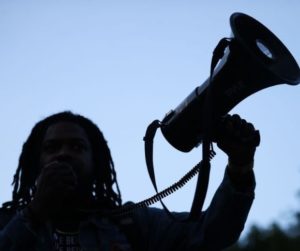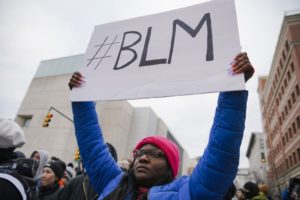Just when you thought things couldn’t get worse for the Black Lives Matter Global Network Foundation, yet another leader seems to have been exposed as part of the grift. After a slew of accusations against several leaders of the activist organization, this development is particularly egregious due to the amount of money involved.
This situation also brings up another issue. With the myriad of scandals plaguing the global initiative and its declining popularity in the wake of skyrocketing crime rates spurred, in part, by its promotion of the “Defund the Police” movement, how much longer will Black Lives Matter survive?
Black Lives Matter in Hot Water Again
 The current leader of the Black Lives Matter Global Network Foundation (BLMGNF) is under fire for allegedly getting funny with the money to the tune of $10 million. Former associates and colleagues are accusing him of having purloined the funding – which comes from donors across the world – for personal use, according to a lawsuit that was filed Sept. 1.
The current leader of the Black Lives Matter Global Network Foundation (BLMGNF) is under fire for allegedly getting funny with the money to the tune of $10 million. Former associates and colleagues are accusing him of having purloined the funding – which comes from donors across the world – for personal use, according to a lawsuit that was filed Sept. 1.
Shalomyah Bowers is the founder and head of Bowers Consulting Firm, a for-profit agency that works with far-leftist initiatives and campaigns. He is a member of BLMGNF’s board and the individual running the nonprofit as the successor to activist Patrisse Cullors, who stepped down after getting lambasted for her own financial scandal.
The plaintiffs in the lawsuit, which was filed in Los Angeles County Superior Court, referred to Bowers as a “rogue administrator, a middle man turned usurper,” who skimmed donations off the top to use as his “personal piggy bank.”
The lawsuit claims Bowers’ conduct resulted in BLMGNF being investigated by the Internal Revenue Service and multiple state attorneys general. His accusers allege that he was “blazing a path of irreparable harm to BLM in less than eighteen months.” The filing also says that while “BLM leaders and movement workers were on the street risking their lives, Mr. Bowers remained in his cushy offices devising a scheme of fraud and misrepresentation to break the implied-in-fact contract between donors and BLM.”

(Photo by Tayfun Coskun/Anadolu Agency via Getty Images)
The plaintiff in the suit is Black Lives Matter Grassroots, a group representing several local BLM chapters. The filing does not provide many details of Bowers’ alleged fraudulent activity. But it does discuss “fissures within the network of Black Lives Matter groups, charting changes in leadership and power that left Bowers with tight control of the organization,” according to the Los Angeles Times.
For Bowers’ part, he did the typical progressive schtick, blaming the situation on white supremacy. He claimed his detractors were “falling victim to the carceral logic and social violence that fuels the legal system.” BLMGNF’s three-member board of directors issued a statement: “They would rather take the same steps of our white oppressors and utilize the criminal legal system which is propped up by white supremacy (the same system they say they want to dismantle) to solve movement disputes.”
The global group is the administrative apparatus that raises money to allocate to Black Lives Matter Grassroots, which is the parent of local chapters across the country. Melina Abdullah, who heads the grassroots group, announced the lawsuit during a press conference last Thursday, claiming Bowers shut her and other leaders out of the organization’s social media accounts earlier this year. She estimated that the global entity holds reserves worth about $100 million, and alleged the board of directors were “engaging in self dealing, enriching themselves off of the backs of people who put their blood, sweat and tears into this movement.”
Is This BLM’s Death Knell?

(Photo by Katie McTiernan/Anadolu Agency via Getty Images)
This is only the latest in a long saga of scandals facing BLMGNF, and while most of the issues involve the global group, the repeated disgrace has tainted the reputation of the overall movement. Recent polling suggests that support for the endeavor has faded considerably since the summer of 2020. Following the murder of George Floyd, when BLM made a substantial resurgence, activists aligned with the campaign staged peaceful and not-so-peaceful demonstrations across the world. In the aftermath of the Floyd killing, the nonprofit raised tens of millions of dollars and became the face of the movement against police brutality.
But two years later, a national poll from the University of Massachusetts Amherst found that support for BLM’s objectives dropped to 41% from 48% last year. Even worse, the study also found that black Americans, in particular, were losing faith in the movement. Support for its goals among African Americans fell from 67% to 56% last year. Those approving of the group’s strategies and tactics plummeted from 65% to 49%.
When even black people are not on board with a movement ostensibly intended to safeguard the lives of this demographic, the organization’s very survival is in doubt. This type of initiative simply cannot exist under the barrage of these financial scandals, which seem to pop up every few months.
At this point, it does not appear that Black Lives Matter will sustain itself even under new leadership. Indeed, if another high-profile police killing of a black person occurs, the movement has dug itself into a chasm so deep that even this would not bring it back to relevance. But the question is: If BLM is about to become a figurative corpse, how do progressives plan to replace it?

